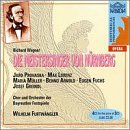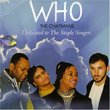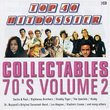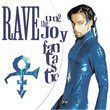| All Artists: Karl Krollmann, Maria Muller, Max Lorenz Title: Die Meistersinger Von Nurnberg (Live 1943) Members Wishing: 0 Total Copies: 0 Label: Arkadia: the 78's Release Date: 3/15/2000 Genre: Classical Styles: Opera & Classical Vocal, Historical Periods, Modern, 20th, & 21st Century Number of Discs: 4 SwapaCD Credits: 4 UPCs: 675754156329, 8011571780668 |
Search - Karl Krollmann, Maria Muller, Max Lorenz :: Die Meistersinger Von Nurnberg (Live 1943)
 | Karl Krollmann, Maria Muller, Max Lorenz Die Meistersinger Von Nurnberg (Live 1943) Genre: Classical
|
Larger Image |
CD DetailsSimilar CDs
|
CD ReviewsBeautiful but Flawed 08/06/2001 (4 out of 5 stars) "A very interesting curio from the war time Bayreuth Festival; definitely a Furtwangler or Bayreuth collector's item, NOT a first purchase of Die Meistersinger. A little background: Winifred Wagner, the composer's daughter-in-law who was in charge of the Festival from 1931 to '45, wanted to close the Festival at the outbreak of the war, but at Hitler's insistence kept it open for performances of Meistersinger, and an occasional Ring. This recording was made in the 1943 Festival when the audience were for the most part soldiers and factory workers--all there as "invited guests of the Fuhrer". The first thing to say about the recorded performance is that it is incomplete: It lacks the first scene of the first act (not a huge loss), and the vocal quintet of the third act, a huge loss indeed, as it is musically one of the high points of the score. The beautifal part of this performance is the overall seamless flow of the music, and Furtwangler's ability to fully bring out every gorgeous nuance, transition and phrase of Wagner's most human opera. Having listened to the Wagner repertoire for thirty years, I have never been a great fan of this opera, but I believe this recording, old, live and flawed as it is, brings out the human drama and the beauty of the composition more than any other--at times bringing one to tears. It is all due to Furtwangler, who works his magic with phrasing and transitions in a surprisingly lyrical approach to the whole work. And now the down side: The singing of the two principal male roles is barely adequate to very poor. Jaro Prohaska's Hans Sachs is in the former category. He sounds gruff and dramatically uninvolved, pulling off the two great monologues by the grace of God and Furtwangler. Max Lorenz's Walther is a shouting, out of breath and jagged affair, much like his Siegfried of seven years later at La Scala, also under the baton of Furtwangler. Listening to Walther's Prize Song in the third act, one wonders how on earth he won the meistersingers' competition. These two are however, offset by some decent performances by others in the cast, a human rather than bufoonish Beckmesser by Eugen Fuchs, a good David by Erich Zimmermann--both famous for these roles--and a glorious and youthful Eva sung by Maria Muller. Emil Preetorius, the artistic director of the Festival at that time went in for large Hollywood effects on the stage, so the meadow scene of the third act is a bit noisy due to the romping of the cast of thousands. The Arkadia sound reproduction is quite good, given the 1943 live performance, and has slightly richer sound and five minutes of more music than the Opera d'Oro version. There is a banded guide, but no libretto. The 4 stars are for the overall beauty achieved in the performance, but the imperfections are certainly there."
|

 Track Listings (15) - Disc #1
Track Listings (15) - Disc #1


